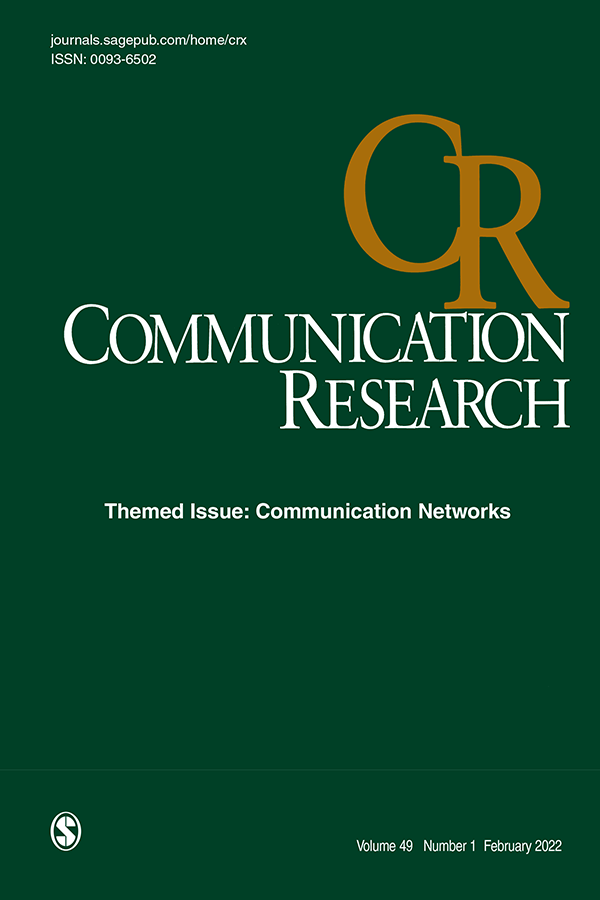新冠肺炎夏季(2020年夏季)关系湍流和转换处理通信的重复测量研究
IF 4.9
1区 文学
Q1 COMMUNICATION
引用次数: 1
摘要
根据关系动荡理论和体验生活过渡模型,本研究考察了已婚夫妇在COVID-19大流行期间经历工作-家庭变化时的沟通和关系质量。64名受COVID-19导致的工作相关变化影响的美国已婚异性伴侣每周报告他们的关系质量以及他们自己和配偶在过渡处理沟通中的参与情况,持续10周。假设解决了关系质量和沟通体验之间的联系,这两种关系在10周内都是平均的,并且在控制前一周的报告的情况下,以周内与平均值的偏差为索引。丈夫和妻子自己的努力——以及他们对配偶努力的看法——增加互动,促进联系,促进感觉,增加信心,与减少关系的不确定性和提高相互依赖性有关。丈夫自我报告的关系质量与以关系为中心的沟通的平均报告有最强烈的联系,而妻子的关系质量与以关系为中心的沟通的每周波动有更强的联系。本文章由计算机程序翻译,如有差异,请以英文原文为准。
A Repeated-Measures Study of Relational Turbulence and Transition Processing Communication During the Summer of COVID-19 (Summer 2020)
Drawing upon relational turbulence theory and the experiencing life transitions model, this study examined communication and relationship qualities as married couples experienced work-family changes during the COVID-19 pandemic. Sixty-four American married, different-sex partners affected by job-related changes due to COVID-19 reported their relationship qualities and their own and their spouse’s engagement in transition processing communication weekly for 10 weeks. Hypotheses addressed associations between relationship qualities and communication experiences both averaged across the 10 weeks and indexed by within-week deviations from those averages, controlling for the previous week’s reports. Husbands’ and wives’ own attempts—and also their perceptions of their spouse’s attempts—to increase interaction, promote connection, promote feeling situated, and increase confidence were associated with decreased relationship uncertainty and improved interdependence. Husbands’ self-reported relationship qualities demonstrated the strongest associations with averaged reports of relationship-focused communication, whereas wives’ relational qualities were more strongly associated with week-to-week fluctuations in relationship-focused communication.
求助全文
通过发布文献求助,成功后即可免费获取论文全文。
去求助
来源期刊

Communication Research
COMMUNICATION-
CiteScore
17.10
自引率
0.00%
发文量
20
期刊介绍:
Empirical research in communication began in the 20th century, and there are more researchers pursuing answers to communication questions today than at any other time. The editorial goal of Communication Research is to offer a special opportunity for reflection and change in the new millennium. To qualify for publication, research should, first, be explicitly tied to some form of communication; second, be theoretically driven with results that inform theory; third, use the most rigorous empirical methods; and fourth, be directly linked to the most important problems and issues facing humankind. Critieria do not privilege any particular context; indeed, we believe that the key problems facing humankind occur in close relationships, groups, organiations, and cultures.
 求助内容:
求助内容: 应助结果提醒方式:
应助结果提醒方式:


